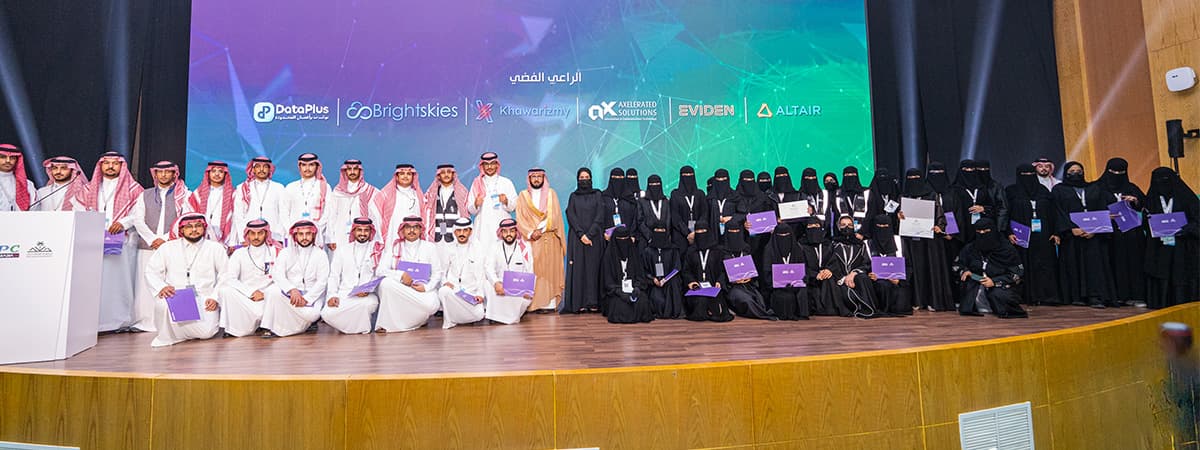
12th Saudi Conference on High-Performance Computing and Artificial Intelligence at the University Comes to an End
On Wednesday, Professor Saad bin Mohammed bin Dajam, Acting President of King Khalid University, witnessed the conclusion of the 12th Saudi Conference on High-Performance Computing and Artificial Intelligence. Hosted by the College of Computer Science, the conference spanned three days at the university's Exhibition and Conference Center in the Al-Fara'a campus.
The final day of the conference featured nine specialized scientific workshops and the announcement of the winners of the High-Performance Computing and Artificial Intelligence Hackathon. Additionally, the conference’s recommendations were unveiled.
Dr. Areej Mohammed Al-Asiri, Dean of the College of Computer Science and Chair of the Scientific Committee for the conference, emphasized that the recommendations highlighted the necessity of ongoing investment in sustainable high-performance computing technologies, such as liquid cooling systems and energy-efficient data centers. The conference underscored the importance of streamlining the integration of artificial intelligence with high-performance computing through the development of more robust software tools and optimized hardware configurations. Furthermore, it stressed the need for enhanced collaboration among environmental scientists, AI experts, and high-performance computing specialists to tackle global challenges like climate change. The conference also noted the significance of addressing scalability issues in AI-dependent high-performance computing systems, particularly by improving computational efficiency for critical applications like air quality prediction and climate modeling. The recommendations included a call to strengthen educational partnerships to cultivate a skilled workforce capable of advancing high-performance computing and AI technologies, ensuring continued leadership in these fields.
Dr. Omar Al-Qahtani, Vice Dean for Research and Graduate Studies at the College of Computer Science, highlighted that the final day of the conference hosted nine workshops conducted by both global and local companies with extensive expertise in high-performance computing. Notable contributors included NVIDIA, Lenovo, Context, Bright Skies, Al-Khawarizmi, and leading researchers from KAUST.
The workshops covered a range of topics, including "High-Performance Computing in the Cloud: Unleashing Exascale Power and Securing Your Future," followed by "Unveiling the Power of Supercomputing," and "Harnessing the Power of Parallel Programming with OpenMP." Other sessions included "Deploying Deep Learning Models on NVIDIA Trion Inference Servers" and "Data Science on High-Performance Computing Platforms: Trends in HPC Architectures Enabling Data Science Acceleration." The day concluded with a workshop on "Practical Applications of AI Tools and Techniques."
Dr. Sarah Abu Ghazaleh, Vice Dean of the College of Computer Science for Female Students, noted that the conference was marked by a high turnout over the three days, featuring 10 exhibitions, 20 scientific sessions, and nine workshops. More than 200 students benefited from these workshops, with over 1,300 registrants for the conference and 300 students participating in the technical sessions.
